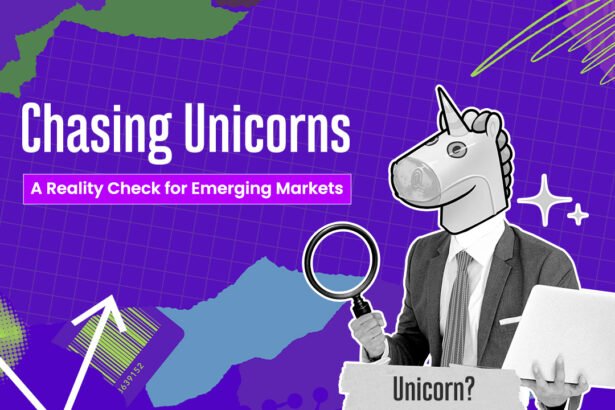The concept of unicorn, startups with a value of over billion-dollar startup valuations that symbolize hypergrowth and success. It is excitingly popular in the startup space. These success stories predominate in headlines, create excitement among investors and frequently create high expectations for founders of early-stage ventures. But there is more to it and especially in growing markets, such as WPP’s, that which leads to such valuations is not only hard, it is often incongruent with the markets.
It is true, and especially the tech media is enamored with unicorns. A golden ticket – considered to be the ultimate sign of success for many founders today. But in emerging markets, such a vision looks more like a fairy tale than quite realistic strategy.
Yes, the goal is very noble—but the situation on the ground is quite something else.
The Hype vs. The Reality – Unicorn Valuations
Let’s be honest—tech media loves unicorns. A billion-dollar valuation? That’s the golden ticket. For many founders, it feels like the ultimate badge of success. But in emerging markets, the dream often feels more like a fairy tale than a feasible roadmap.
Sure, the ambition is admirable. Unlike Silicon Valley, emerging markets deal with:
- Limited access to capital.
- Fragile economies.
- Fragmented business ecosystems.
Yet somehow, founders still feel pressure to grow at lightning speed—hoping for an IPO or big acquisition. But here’s the twist: long-term value creation—profitability, shareholder returns, sustainable models—takes time. Research shows that over 95% of startups across MENA, Pakistan, and Africa grow steadily rather than blitzscaling. So, maybe it’s time to rethink the game plan.
Does the VC Model Truly Fit Emerging Markets?
Venture capital works great in mature ecosystems like the U.S. and Europe. High-risk, high-reward? That’s the whole point. VCs bet on ten startups, knowing only one might succeed spectacularly. That’s a model built for places with:
- Deep capital pools,
- High purchasing power,
- Predictable regulations.
But emerging markets? Not quite the same.
Let’s break it down:
- Limited VC availability – There simply aren’t enough VCs on the ground to keep funding round after round.
- Macroeconomic instability – Exchange rate swings, inflation, and political uncertainty make growth unpredictable.
- Different consumer dynamics – Many customers have lower purchasing power and require trust-building before committing to new products or services.
- Operational hurdles – Think weak infrastructure, unreliable internet, and unclear regulations.
Put all that together, and hyper-growth becomes a gamble. Burn too much cash too fast, and if the next funding round doesn’t land in time… well, that’s a wrap.
Careem: A Unicorn, But Not the Blitzscaling Kind
Let’s talk about Careem—a homegrown unicorn from the Middle East. But here’s the catch: they didn’t start off chasing a billion-dollar dream. Instead, they focused on solving real problems—unreliable transport, cash-based payments, and fragmented mobility systems.
So how did they do it?
- Localized strategy – Careem tailored its approach to each country’s specific challenges—be it regulatory, financial, or cultural.
- Sustainable business model – Unlike Uber, they didn’t try to scale blindly. They grew at a pace that made sense.
- Smart exit strategy – Uber eventually acquired Careem for $3.1 billion. But it wasn’t just about the valuation—it was about long-term value and thoughtful execution.
So yes, they became a unicorn. But not by mimicking Silicon Valley. Instead, they rewrote the rules for emerging markets.
Blitzscaling in Emerging Markets A Risky Myth?
Blitzscaling—the Silicon Valley buzzword that means scaling fast and worrying about profits later. It worked for Amazon, Uber, and Airbnb… but does it work everywhere?
Well, maybe not.
Here’s why:
- Capital is scarce – Startups can’t rely on massive rounds just to stay afloat.
- Expansion without solving local pain points is risky – You can’t copy-paste a growth strategy if it doesn’t address ground realities.
- Customer trust takes time – In many markets, people value relationships over rapid brand exposure. Trust and reputation matter more than speed.
We’ve seen multiple ride-hailing startups in Africa crash and burn trying to replicate Uber’s model. Why? Because they skipped the homework on what really makes a business sustainable in those markets.
Alternative Paths to Startup Success
Let’s flip the script: what if success didn’t have to mean unicorn status?
Some better guiding principles:
- Build for viability – Create a business that can stand on its own, without endless funding injections.
- Expand with purpose – Growth should follow stability, not precede it.
- Play the long game – Think generational wealth, not just quick wins.
Case Study – FinTechs That Are Winning Without the Unicorn Crown
There’s no shortage of success stories that didn’t rely on blitzscaling. Check these out:
- Fawry (Egypt) – A payment processor that focused on solving real problems like financial inclusion from day one. Profitable before it was trendy.
- Paymob (Pakistan) – Helped small businesses go digital—not by pouring in cash but by building trust and functionality that actually worked for users.
- Flutterwave (Nigeria) – Partnered strategically, grew smartly, and became a payment powerhouse by being deliberate—not just aggressive.
What’s common? They all focused on building solid, problem-solving businesses before chasing lofty valuations. And guess what? They’re still growing. Get the guidance articles here at MENAP
Final Thoughts -What If Longevity > Valuation?
Maybe it’s time to reframe the narrative. Unicorn status sounds glamorous, but in emerging markets, chasing it blindly can be a recipe for burnout—or worse, failure.
What if we focused on:
- Solving real-world problems,
- Creating financially viable business models,
- And growing with intention, not pressure?
Because in the long run, it’s the companies that build solid foundations—not just flashy valuations—that survive and thrive.
The question isn’t whether unicorns are possible. The better question might be: Are they the only path to success?




